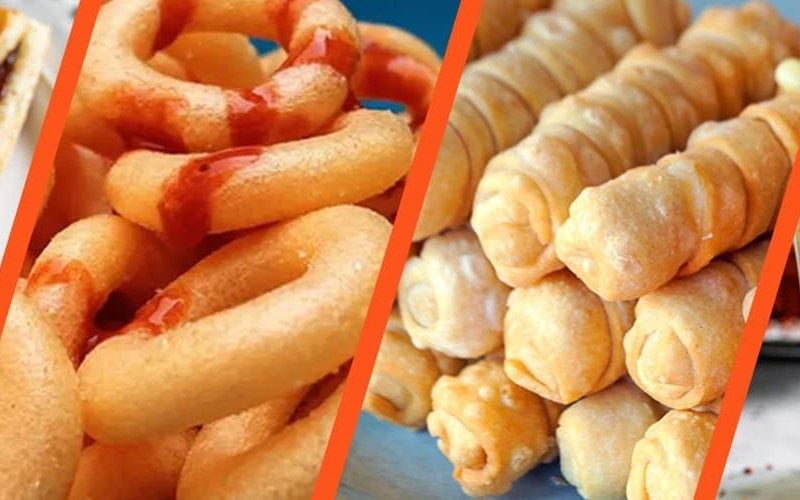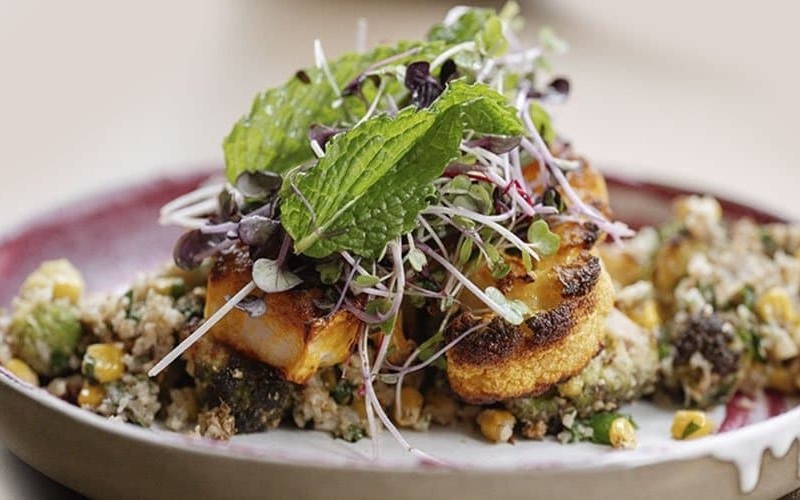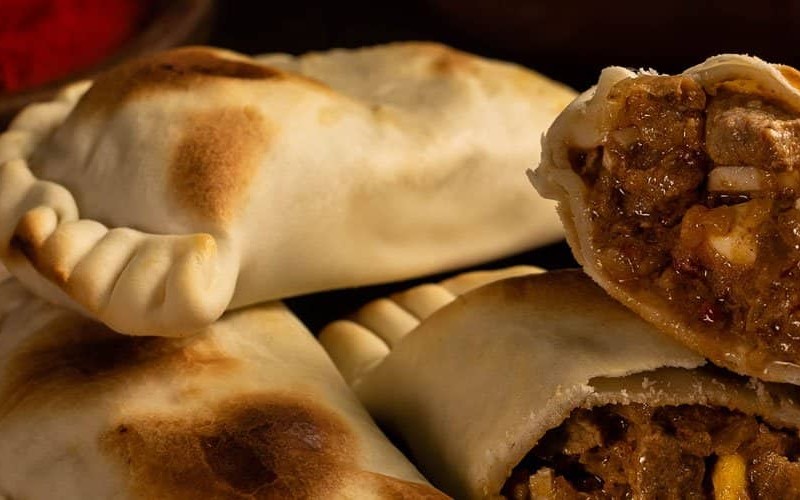10 Must Try Latino Snacks & Bites
With so many varieties of delicious Latino snacks and quick street food to choose from, coming up with top picks is nearly impossible. But we tried our best!

If there’s one thing the Latine community prides itself on, it’s that we know good food. From full meals to snacks, we love to eat! Sweet, savory, and everything in between, we have a special relationship with all the food we consume. Check out our list of the 10 Latine snacks we crave, and all the memories that come back with every bite. After all, isn’t that one of the main reasons we’re so attached to these snacks? They’re reminders of those simple moments that brought us so much joy.
Gansitos
Country of origin: Mexico
Gansitos are little snack cakes filled with creme and strawberry jelly and also covered entirely in a chocolate coating. Can you say yum? So many recall sweet memories of eating frozen Gansitos. We don’t know what our parents were thinking but we definitely know some of us might have had these for breakfast. But if poptarts count as breakfast food, Gansitos definitely make the cut, and IOHO they’re much tastier!
Alfajores
Country of origin: Cuba
From the outer crisp cookie to the dulce de leche filling, alfajores are melt in your mouth delicious! They’re the perfect in-between of a cake and pan dulce and pair perfectly with your midday cafecito. They’re a little bite of heaven that no one can resist!
Tequeños
Country of origin: Venezuela
Simply put, Tequeños are an upgrade to the basic mozzarella cheese sticks. Made with crispy dough and fried until golden brown, we can’t stop ourselves from eating as many as we can. The perfect appetizer to kick off your party and show off your Latine cultura!
Elote En Vaso or Esquites
Country of origin: Mexico
We’ve always loved elotes, but an elote en vaso (AKA esquites in Mexico) is magic. Elotes are a little bit of the best of all the things you enjoy: queso, crema, chilito picoso and of course, the fresh corn (it’s not legit if it comes from a can). People stand in line for 30 to 45 minutes or more waiting to get their hands on a snack that they will devour in less than 10 minutes because the taste of corn in a cup is that amazing!
Pupusas
Country of origin: El Salvador
The greatest thing about stuffed cornmeal patties? They’re fully customizable! We love pupusas because they’re super filling and can be made to your liking. Pro tip: order them with curtido, a spicy cabbage, carrot, onion, and vinegar slaw. Warning: if you eat them with a fork, you might get side-eye.
Tostones
Country of origin: Caribbean and Latin America
Fried and salted plantains, anyone? Tostones were a staple growing up for many in Puerto Rican households. Some of our favorites are tostones de pana that our abuelas would make from scratch. You can’t forget the mayo ketchup on the side to add a bit of flavor to an already savory treat.
Pastelitos De Guayaba y Queso
Country of origin: Cuba, Colombia, Puerto Rico
Walk into any Latine bakery with a large Cuban, Puerto Rican, or Colombian population and you’ll probably always see pastelitos de guayaba y queso in the display case. These puff pastry desserts can be covered in powdered sugar or corn syrup but the base of guava and cream cheese always remains a constant.
Arepas
Country of origin: Colombia, Venezuela
Similar to the Salvadoran pupusa, arepas are a favorite for anyone looking for a handheld cornmeal-based snack stuffed with anything imaginable. We love ours with cheese and chicken, and if we’re feeling fancy we might throw some avocado on there too!
Quenepas/Mamoncillo
Country of origin: Many in Latin America and the Caribbean
These bittersweet fruits are known by many names in Latin America, the Caribbean, and even states like Florida. Many might affiliate them with hot summers, the juicy fruit providing relief from the heat almost instantly.
Totis Donitas
Country of origin: Mexico
Totis Donitas are little wheat circles covered in lime and chile. These are a great portable snack for those on the go, and come in some flavor varieties as well we love to share.




